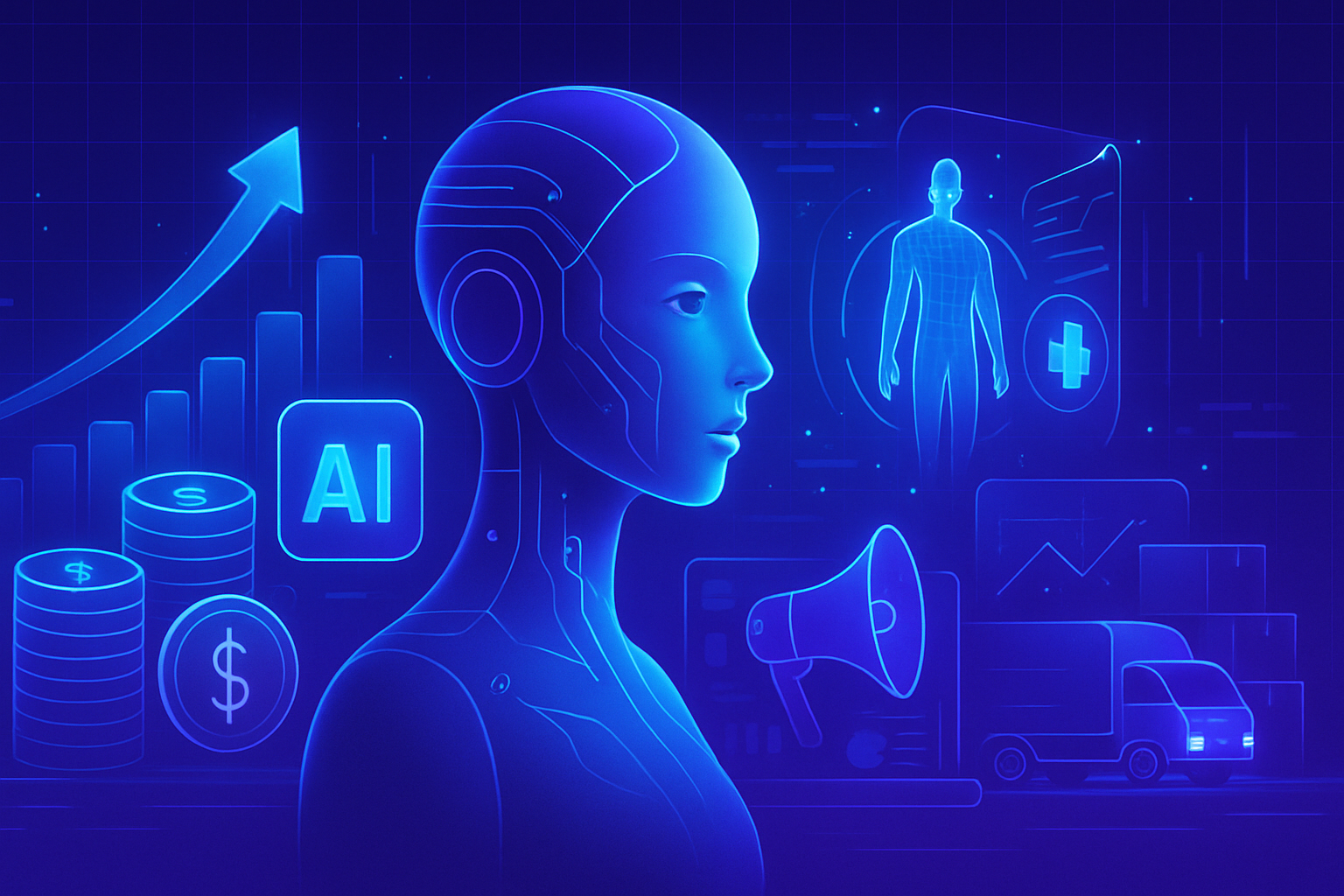Contemporary businesses are looking to maximize returns on investment by integrating generative AI. This innovative sector drives digital transformation and illustrates the unparalleled opportunities offered by artificial intelligence. The alloy between human and machine intelligence no longer merely conditions innovation; it becomes a strategic pillar.
Focusing efforts on promising sectors conditions tangible results. In France, pioneering companies in adoption are already seeing considerable measurable returns. Generative AI, in particular, reveals its potential in areas where its integration proves essential and timely beneficial.
The impressive performance of generative AI in France
A recent study shows that France is leading Europe in terms of the adoption of generative AI. The results, from a global report on return on investment (ROI), reveal that 57% of use cases in the sector have been in production for over a year.
With 3,466 executives surveyed globally, including 179 in France, the study conducted by the National Research Group highlights the clear enthusiasm of French companies for this technology. The goal is clear: to take advantage of tangible benefits as soon as possible.
Notable sector impact
Returns on investment prove particularly robust across several domains. The business and IT sectors show a 71% ROI, followed by customer experience at 56% and cost optimization at 54%.
More than one economist agrees that the adaptation of generative AI within the economic fabric constitutes a major lever. For example, among companies reporting an increase in their revenues, 51% attribute a growth of 6 to 10% to this technology, while 40% mention a progression exceeding 10%.
The emergence of AI agents
Beyond generative AI, a significant adoption of agentic AI is taking shape. Indeed, 47% of French companies are actively using AI agents, thus placing themselves above most other European countries, such as the United Kingdom and Germany.
Those who adopt these agents record higher ROIs, especially in the customer service domain (54%), followed by marketing (55%) and security operations (51%). The use of these agents proves beneficial for operational efficiency and customer satisfaction.
Future forecasts
Company executives express a resolute vision regarding their future investments in AI. Approximately 43% of them plan to allocate at least 50% of their AI budget to agents. Such a financial commitment focuses on the development of robust and effective AI solutions.
This movement reflects a willingness to adapt in the face of rapidly evolving technologies. The quest for an artificial intelligence that enhances human capabilities, rather than replaces them, proves to be a shared aspiration among many entities.
Companies like Microsoft are taking serious measures regarding access to and the use of generative AI, limiting certain features to preserve the integrity of systems and users. The challenge is to create an environment where AI can truly thrive while adhering to ethical standards.
A dynamic to sustain
The insights revealed by this study highlight the path towards broader adoption of generative and agentic AI. French companies will undoubtedly provide exemplary examples of how to integrate these technologies into their strategy.
For more information on integration strategies for AI and the promotion of intelligence that elevates human capabilities, several resources and studies are available online. Companies must remain vigilant and proactive to maximize their return on investment as quickly as possible.
Frequently Asked Questions about Maximizing Returns on Investment with Generative AI
How can generative AI contribute to increasing our revenues?
Generative AI can boost revenues by improving operational efficiency, personalizing customer experience, and facilitating the creation of relevant content, which attracts and retains more customers.
Which sectors benefit most from the adoption of generative AI?
The business and IT sectors, customer experience, and cost optimization are among the most advantaged, showing significant ROIs related to generative AI.
What metrics should we track to evaluate the ROI of generative AI?
Companies should measure revenue growth, cost reduction, employee productivity, and improved customer satisfaction to assess the ROI of generative AI.
How do AI agents and generative AI interact to maximize ROI?
AI agents automate repetitive tasks and enhance customer service, while generative AI enriches interactions with personalized content; together, they optimize processes and increase ROI.
What portion of the AI budget should companies allocate to generative AI?
It is recommended to allocate a substantial part of the AI budget, often considered to be at least 50%, to generative AI to maximize investments in innovative technologies.
How does the adoption of generative AI technologies vary between countries?
In France, the adoption of generative AI is ahead of other European countries, with a high percentage of companies having already put use cases into production for over a year.
What concrete results can we expect from the implementation of generative AI?
Companies that integrate generative AI can expect revenue increases ranging from 6% to over 10%, as well as gains in operational efficiency.






